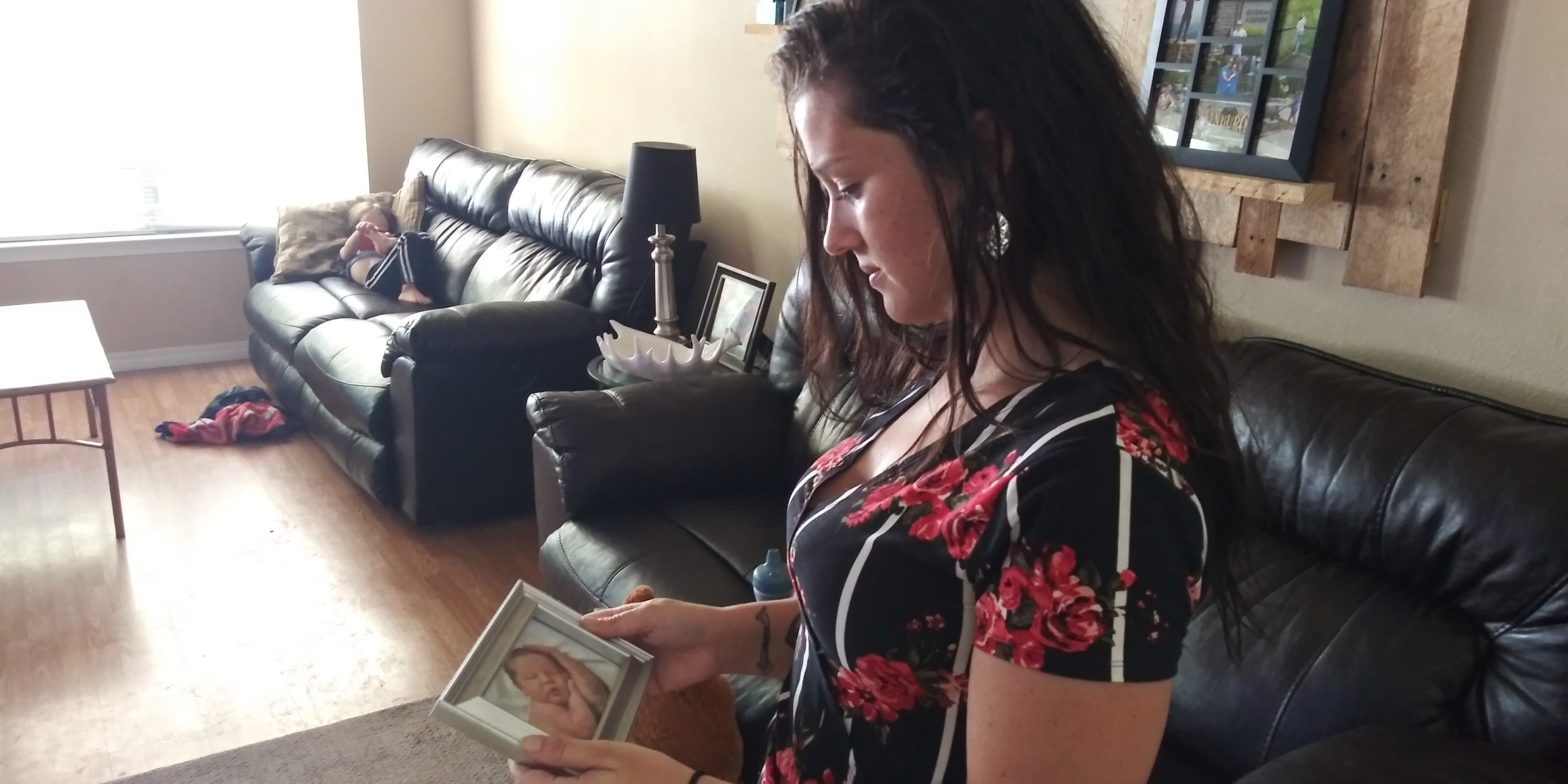![Destiny McCalvin looks at a photo of her son, Chance, as a newborn. Chance, now 3 years old, plays on the couch behind her. She is 100 percent sure he would not be alive today if not for the new drug Spinraza that saved him from spinal muscular atrophy. [AARON LITTLE/PRESS GAZETTE]](http://127.0.0.1/wordpress/wp-content/uploads/2022/01/ghows-DA-86f671e9-7eaf-2c4f-e053-0100007f735a-055b2c37-scaled.jpeg)
MILTON — After losing her infant daughter Kensley to a rare genetic disease eight years ago, Destiny McCalvin vowed to exhaust every option when her third child, Chance, developed the same disease. She believes Chance would not have survived spinal muscular atrophy if not for a new drug.
Kensley appeared healthy until around 2 to 3 months old, McCalvin said.
“She always kept her hands closed,” McCalvin said. “They were so tensed up and we didn’t know why.”
She and her husband Justin also noticed she couldn't hold her head up.
At each monthly checkup, doctors kept telling her to wait, McCalvin said. She said it took her husband coming with her and demanding answers at the six-month checkup to get a referral to Shands Hospital in Gainesville.
“They knew immediately what she had,” McCalvin said.
The doctor promptly admitted Kensley into the hospital. He brought 20 medical students to see Kensley’s symptoms, McCalvin said. Kensley had little control over her head and limbs. She was breathing hard and her body was bell-shaped.
“They pulled us into a room,” McCalvin said, “basically telling us, ‘Your daughter has a genetic disorder called SMA (spinal muscular atrophy). It’s a two-week test but she has every sign for it and she has two weeks to live.”
The hospital suggested one of two options: either let Shands monitor her while the family stayed at the Ronald McDonald House or go home and put 6-month-old Kensley into hospice care. The McCalvins chose the latter.
Destiny said hospice made Kensley comfortable, even giving her musical therapy, and she beat doctors' expectations by living two more months. McCalvin said her daughter loved the outdoors but they couldn’t take her often for fear of her contracting pneumonia.
One day, the family took Kensley out for her first boat ride.
“We had the best day ever,” McCalvin said.
When they got home, Kensley's 2-year-old brother told her he loved her.
“Right after, we saw her belly go down,” McCalvin said.
It was the last breath Kensley took. Justin could not resuscitate her.
Two years later, the McCalvins decided to try having another child.
“We mustered the courage,” Destiny said. “I felt it was more for my husband, because our daughter was his only biological child. My first child (Bryce) he helped raise.”
In researching SMA, Destiny found out she and her husband were both carriers of the disease and there would be a 1-in-4 chance their child would develop it.
However, because SMA is not on the list of conditions for which hospitals test, she had to demand it. So at 16 weeks, she got the test, and two weeks later the McCalvins got the devastating news. Their son had SMA — the same disease that took his sister’s life.
By this time, Destiny was a part of an SMA Facebook group. She asked if anyone knew of any trial drugs.
“We knew what nothing’s going to do,” she said.
Through this group, Destiny learned about Spinraza, the first SMA treatment. Biogen, a pharmaceutical company, was in the first phase of the drug’s development. She contacted Dr. Richard Finkel at Nemours Children’s Hospital in Orlando and through him, Destiny was accepted into the trial.
Chance was born Sept. 30, 2015. He is now 3 years old and doing well now, McCalvin said.
“Now he’s just growing. I can’t believe how well (the drug has) done,” she said.
Every four months, the family makes the same trip to Orlando for treatment.
“During surgery they put him to sleep, draw out a tablespoon of spinal fluid and replace with Spinraza,” Destiny said. “He has to lay flat for an hour. Then he wakes up and he’s ready to go.”
She said Chance resists the process but he gets to wake up to his favorite foods: pizza and chocolate pudding.
Not only is Chance otherwise living as a normal 3-year-old, but he hasn’t shown any side effects from the drug for two years, Destiny said.
Chance was originally supposed to be named Justin Jr., Destiny said, but the family's ordeal inspired his parents to name him Chance. Renewed by their son’s success, the McCalvins had another child 15 months ago and named him Justin Jr.
Not only did Justin Jr. not develop SMA, he does not have the defective gene that could have been passed to his children.
Starting in August of 2020, expecting parents in Florida will be able to get tested for SMA.
McCalvin said expecting mothers should get this test.
“Better safe than sorry,” she said. “Like Down syndrome, you’d want to know if your kid has it. I lost my daughter at 7 months old. It’s not a joke. It’s very serious.”





This article originally appeared on Santa Rosa Press Gazette: A fighting Chance
